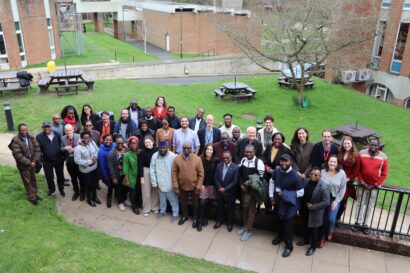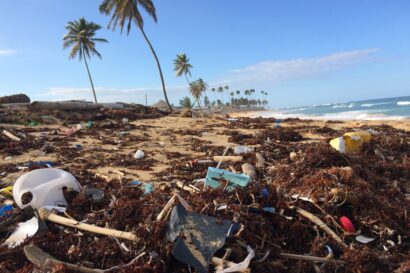After over a year in development, the ICTD is thrilled to launch a new research programme on Climate and Environmental Tax.
As the climate emergency worsens, our research aims to provide more evidence on what types of climate and environmental taxes are desirable for lower-income countries and how to make them successful. Environmental and climate taxes are receiving increasing attention, but the vast majority of existing research focuses on high-income countries, and especially on carbon taxes, on which much of the global debate is focused.
However, there are many types of environmental taxes, ranging from forestry taxes to import tariffs on used cars. Some of them may be more feasible and attractive to lower-income countries given their specific economic, administrative and political circumstances and their limited historical responsibility for the current crisis. Our aim is to help shape environmental tax policies that will contribute to both revenue generation and a green economic transition.
Reflections from the research lead
The lead of the new research programme, Dr Giovanni Occhiali, says:
“After more than a year of lead up work, I am very happy to see the ICTD’s programme on Climate and Environmental Tax launch today. I find this a very exciting area of work, and one in which I hope the ICTD can contribute to critical and policy-relevant research.
There is generally a dearth of evidence on the impact of existing climate and environmental fiscal policies in low-income countries, and most of the international attention is directed towards carbon taxes.
While these might be important in certain contexts, fiscal policies can play a much wider role in tackling a variety of existing environmental issues, from traffic pollution in congested urban areas to providing better incentives for efficient land use in agriculture and forestry.
Due to many existing knowledge gaps, there are a variety of important research areas which we could focus on initially. To understand where our work could make more impact, we have spent quite some time this year talking to many of our institutional partners, which are mostly revenue authorities and Ministries of Finance in countries such as Rwanda, Uganda, Sierra Leone, and Eswatini.
What these conversations revealed is that the most pressing questions at the moment revolve around which institutional set-ups can support lower-income country governments in leveraging their existing capacities; and how to make environmental fiscal reforms palatable to citizens. Finally, understanding which tax measures are most feasible to implement to deliver quick wins for citizens, such as waste taxes or import tariffs on used cars, are important to understand.
While not as flashy as some of the prevailing questions in the international fora, such as how to save rainforests, finding answers to these questions is important to laying the groundwork for tackling bigger environmental tax issues in sub-Saharan Africa in the near future. And this is exactly what we intend to do.”
A steady stream of research
So far, several publications under the theme have been released including a working paper and research in brief focused on South Africa’s carbon tax, a policy brief examining the fiscal policies fisheries in five African countries, and a blog analysing the potential for a plastic tax to curb India’s plastic waste crisis.
All publications, blogs and news briefs can be read here.
At the time of launch, several projects are underway, including a working paper examining the status of environmental taxes across several countries in sub-Saharan Africa. In the video clip below, Dr Occhiali shares a few behind-the-scenes insights on the research in progress.
Open call for proposals
There is now an open call for proposals under the theme. The ICTD seeks proposals for research that will deepen understanding of the concrete potential of environmental taxes, and challenges to their effective deployment, across lower-income countries.
The call is open to proposals related to any type of environmental tax, though we are particularly interested in proposals focused on sub-Saharan Africa, and looking at issues related to:
- The connection between forestry taxation and sustainable forest management;
- Waste taxes to promote sustainable waste management at the local government level;
- The potential role of revenue earmarking in increasing the appeal of environmental fiscal reforms;
- Institutional obstacles to the deployment of environmental taxation due to conflicting mandates across different governmental institutions, and
- The potential and limits of carbon taxes in lower-income countries in responding to the Carbon Border Adjustment Mechanism or as part of wider fiscal packages to support a green economic transition.
Stay up to date with the latest upcoming news and research related to the Climate and Environmental Tax theme here.




